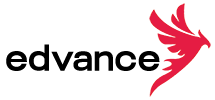The Learning Curve: Embracing Knowledge and Experimentation
In the realm of innovation, the commitment to continuous learning and the spirit of experimentation are vital components that can greatly enhance one’s journey. Embracing knowledge not only expands one’s intellectual horizons but also fosters creativity and inspires new ideas. Various resources available today—such as books, online courses, and workshops—serve as invaluable tools for individuals seeking to deepen their understanding of critical concepts in technology, design, and entrepreneurship.
Books remain a cornerstone for many learners, offering insights from industry experts and providing foundational knowledge in specific fields. Whether it is through the latest publications on agile methodologies, design thinking, or entrepreneurial leadership, literature enhances critical thinking and encourages reflection on existing practices. Online courses, ranging from platforms like Coursera and edX to LinkedIn Learning, also provide structured learning paths that make complex subjects accessible to a broader audience. These resources often include real-world case studies, allowing learners to see theory in action and understand its practical implications.
Workshops and seminars further complement this learning foundation by providing interactive experiences. These events facilitate hands-on learning, where participants can engage directly with experts and peers, turning theoretical knowledge into practical skills. Additionally, the significance of hands-on experience cannot be overstated. Engaging in personal projects, participating in hackathons, and collaborating with peers fosters an environment of shared learning and encourages fresh perspectives. These experiences not only hone technical skills but also cultivate problem-solving abilities, which are essential for navigating complex challenges in innovative pursuits.
Through this blend of continuous learning and active experimentation, individuals can unlock their creative potential, ultimately paving the way for impactful innovations. Embracing both knowledge acquisition and application in real-world situations creates a fertile ground for developing unique solutions that address contemporary challenges.
Building Dreams: From Ideas to Execution
Transforming ideas into tangible projects is a journey that encompasses several critical stages, each requiring a unique approach and mindset. The first step in this process is idea validation. This phase involves assessing the feasibility and market potential of the concept. Engaging in thorough market research, including competitor analysis and identifying target demographics, helps in refining the idea. Seeking feedback from mentors or industry experts during this stage can provide valuable insights, ensuring that the idea resonates with potential users.
Once validation is achieved, the next step is prototyping. Developing a Minimum Viable Product (MVP) allows innovators to create a basic version of their project, encapsulating its core functionalities. This MVP serves not only as a functional model but also as a tool for soliciting further feedback from users and stakeholders. Collaboration is crucial during this stage; team members must work together effectively to fine-tune the product based on user experiences and suggestions.
The execution phase follows, wherein the idea begins to take its final form. This phase can often present challenges, such as technical obstacles or resource limitations. A strategic approach to planning is therefore essential. This includes setting clear milestones and timelines, which facilitate monitoring progress and making necessary adjustments. Utilizing project management tools can provide structure and ensure that team efforts are streamlined.
Throughout this journey, sharing personal anecdotes or drawing from case studies can serve as a source of inspiration. It is crucial to recognize that setbacks are a natural part of the process. Problem-solving skills, resilience, and a willingness to learn from failures can significantly enhance the likelihood of success. Embracing the journey from conception to realization not only stimulates personal growth but also contributes to a culture of innovation that benefits society as a whole.

